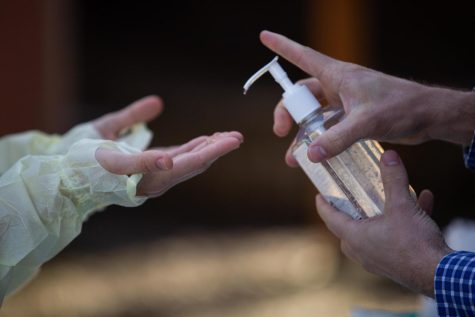Respiratory illnesses overtake Madison
January 9, 2023
Occasional breakouts with COVID-19 continue in schools, but something else is in the air. Old respiratory viruses are making a resurgence and hitting students just as hard.
Previously, mask requirements helped to keep some of the viruses at bay, but with those mandates gone, Influenza and Respiratory Syncytial Virus (RSV) are making a comeback. And the winter—when many people are indoors and in tighter quarters—is the ideal season to spread illnesses. Since early September, urgent care clinic visits for Flu-like symptoms have quadrupled, according to the Virginia Department of Health.

So far, respiratory illnesses are infecting more students across the state than health officials have expected. That may be partly due to people not knowing they are infected and inadvertently spreading the virus. Hope Luong, a registered public health nurse who works in Madison’s clinic, commented on how RSV can get around and how certain age groups react to it.
“People infected with RSV are usually contagious for three to eight days and may become contagious a day or two before signs of illness,” Luong said.
People can face different effects from infection that lead to serious medical emergencies.
“RSV is the most common cause of bronchiolitis (inflammation of the small airways in the lung) and pneumonia (infection of the lungs) in children younger than 1 year of age in the United States,” Luong added.
The best precaution is good hygiene, Luong said, that includes washing hands for at least 20 seconds and disinfecting door knobs and mobile devices.
Any respiratory illness will put a student out of school for some time. Recovering from a sickness can be tough for high schoolers and adults, but transmitting something like RSV to a younger child or grandparent can be life-threatening. Dr. Dong-Gi Hong, a retired internal medicine doctor, says that RSV has been more prevalent this year, which can be a problem for family members of high-schoolers as RSV creates an obstruction of the upper airway.
Misdiagnosing and failing to prevent the spread of illnesses such as RSV can have detrimental effects to others.
“Anyone can be a carrier, as the disease can be very mild and one can be misled to believe one has just a mild cold,” Hong said.
He noted that staying home is the best recovery and is respectful to those in school. As for healthy students, Hong put it simply, “Keep a distance when you see someone with a runny nose, coughing and sneezing, and a running fever.”


